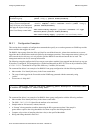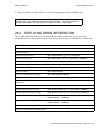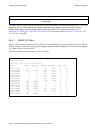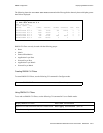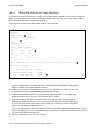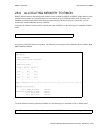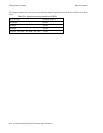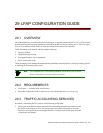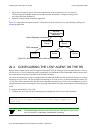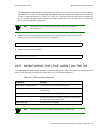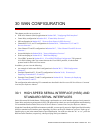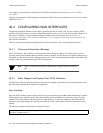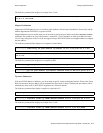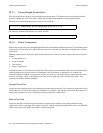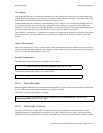
29-2 Riverstone Networks RS Switch Router User Guide Release 8.0
Configuring the LFAP Agent on the RS LFAP Configuration Guide
•
One or more accounting servers. The main responsibility of the accounting server is to listen for
LFAP messages from the RS on the network and collect the information. A single accounting server
can collect data from multiple RS.
•
Optional 3rd party billing/accounting application.
Figure 29-1 shows the interactions between LFAP on the RS, the accounting server, and a third party billing and
accounting application.
Figure 29-1 Riverstone’s network traffic accounting services
29.4 CONFIGURING THE LFAP AGENT ON THE RS
Because the accounting server-to-RS connection is through TCP, LFAP messages can be transmitted across a LAN or
a WAN. However, if you are deploying traffic accounting to save backbone or WAN bandwidth, it makes sense to have
the accounting server as close as possible to the RS that it manages.
Up to three accounting servers can be configured on a RS, although the RS can only send LFAP messages to a single
accounting server at a time. The first configured accounting server is the primary, so the RS attempts to connect to it
via TCP first. If the connection fails, then the next configured accounting server is tried. An accounting server can be
configured as the primary accounting server for one group of RS and the secondary accounting server for another group
of RS.
To configure and enable LFAP on a RS:
1.
Configure the ACL rules for the accounting policy and apply the ACL to one or more interfaces:
Note
The
accounting
parameter must be followed by one of the three checkpoint time
interval parameters:
5-minutes
,
15-minutes
, or
hourly
.
rs(config)# acl 101 permit ip any any any any accounting 15-minutes
rs(config)# acl 101 apply interface all-ip input output logging off
policy local
UG3DUW\
%LOOLQJ$FFRXQWLQJ
$FFRXQWLQJ
5RXWHU
5RXWHU 5RXWHU
/)$3PHVVDJHV
5HSRUW5HTXHVWVDQG4XHULHV
$SSOLFDWLRQ
6HUYHU
$FFRXQWLQJ
6HUYHU



